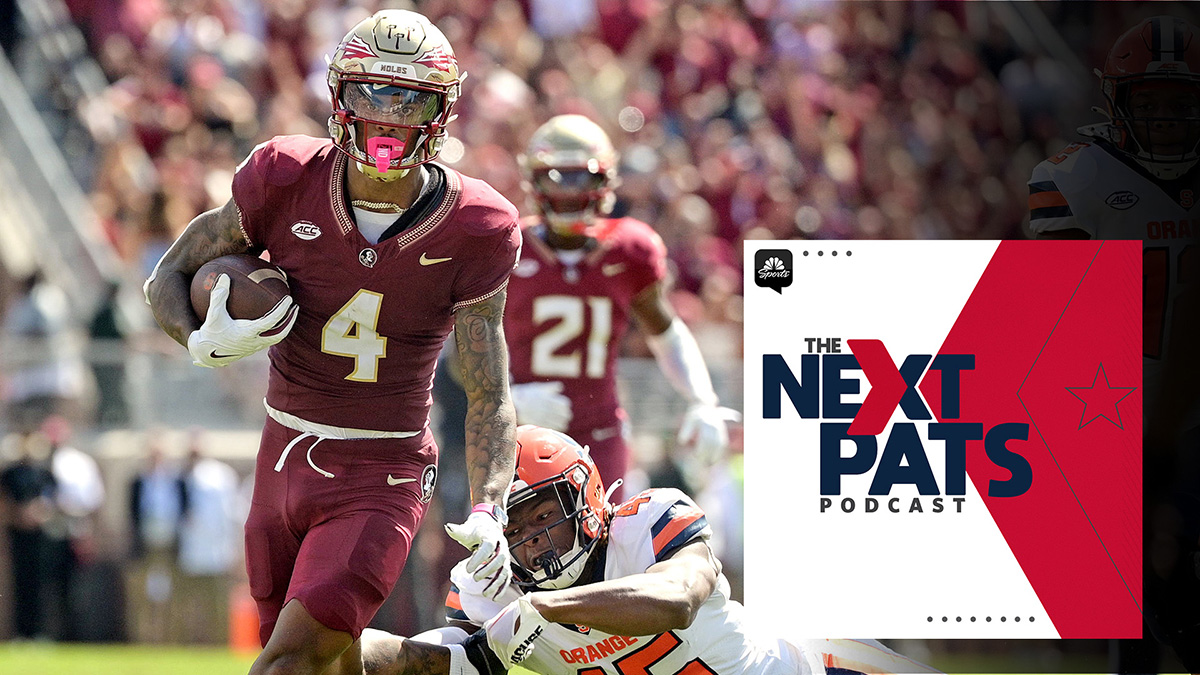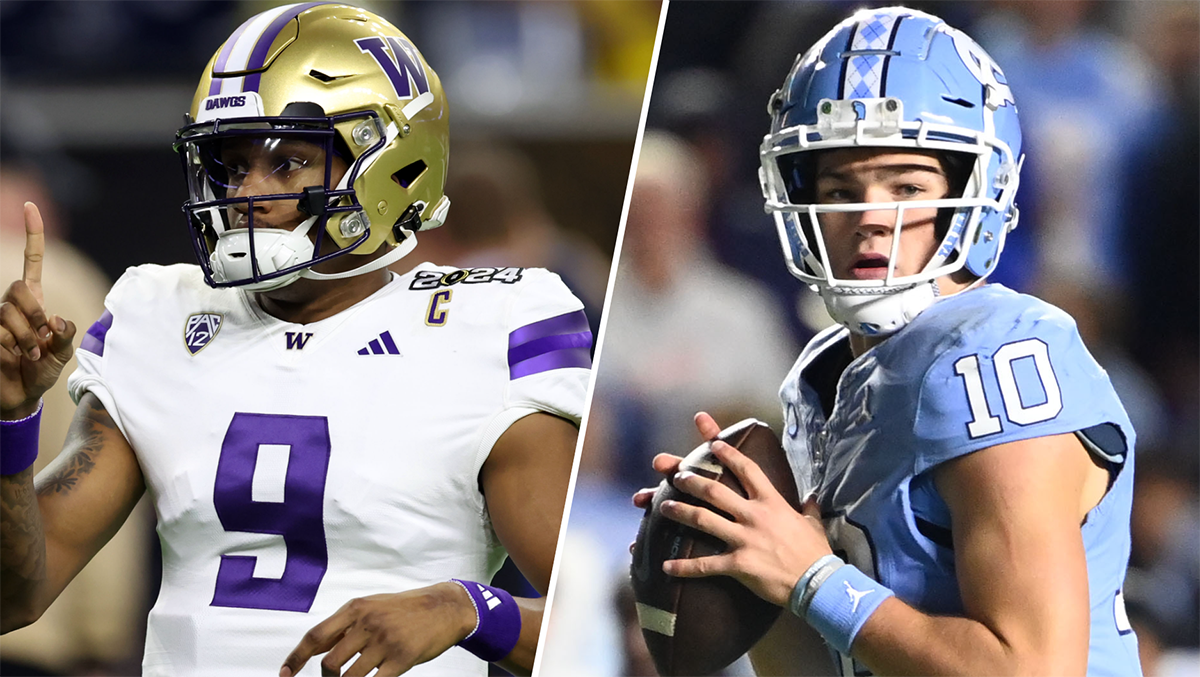It was a day after the Patriots had been gobsmacked by the Baltimore Ravens in the 2009 playoffs. In 10 years under Bill Belichick, the team had never had a season end like that. And they haven’t had one end like that in the eight seasons since.
MORE PATRIOTS
Belichick’s season-ending press conference was well-attended after the 33-14 loss, which punctuated a 10-6 regular season. He was open and reflective.
At the very end, I asked him -- gingerly -- about whether his coaches and executives felt empowered enough to question him.
“This is kind of a hard one, but a lot of the guys that are on your staff now -- as talented as they may be -- weren’t on your staff before you were Bill Belichick, three-time Super Bowl Champion. I wonder if there isn’t a level of awe that they may feel to be on your staff, whereas Josh McDaniels, Tom Dimitroff, Scott Pioli, Charlie Weis, you all came up together. What I’m driving at is, are you getting enough pushback from the guys on your staff? Do you know what I mean?”
Belichick knew what I meant.
New England Patriots
“Yeah, absolutely. And I’ve talked to other coaches about that -- coaches that are pretty well established -- and I get the nature of your question. There’s definitely Romeo [Crennel] or Charlie or somebody; they wouldn’t really be afraid to at times say, ‘What are you doing? Are you serious? Are you seriously considering that?’
“And then there is certainly another level of coach that at that time or at this time, they just wouldn’t say that to me. And I mean, I understand that and that’s . . . and I was like that. There was a point in time where I was like that, where I would never say to, whether it was Coach [Ted] Marchibroda (during Belichick's time as a Colts assistant in Baltimore) or Red Miller (in Denver) or whoever, I wouldn’t. And then there was a point in time where I would, whether it was Bill [Parcells] or . . . mostly Bill.
“There’s a point in time where you reach a point or you have a relationship and you feel more comfortable saying things that you just wouldn’t have said -- even with that guy -- a few years earlier. I definitely get where you’re at on that and I mean, I understand that.
“We try to have an open communication, an open forum on some things. And some things aren’t open. Some things are: ‘This is the way they’re going to be.’ But I understand what you’re getting at and I think that’s something, as a head coach, you have to be conscious of. And I am. I’m not saying a do a great job of it. I don’t know whether I do or not. But I’m definitely conscious of that and I get what you’re saying there.”
Pushback, Belichick seemed to agree, was important. Having someone to check you -- even if it meant stepping on your toes -- was a good thing.
What made the 2009 season unique was the lack of pushback personalities.
Tom Brady returned after missing 2008 with his torn ACL and was easing back in. Pioli and McDaniels left for Kansas City and Denver, respectively, and four of the strongest locker-room voices of the entire Patriots’ run to that point -- Mike Vrabel, Richard Seymour, Tedy Bruschi and Rodney Harrison -- were traded or retired.
At one point in late November of that year, I said to Tom Brady in the locker room, “This place seems different . . . "
“It’s changed a lot,” he answered. “We’re very young.”
The void left by players and coaches who’d built the Patriots with a certain selfless style was filled by players who really didn’t give a damn about the so-called Patriot Way.
Minor dustups ensued.
That was the season when Adalius Thomas, Derrick Burgess, Gary Guyton and Randy Moss were all sent home for being late. The next day Thomas spoke at his locker about being treated like a kindergartener.
Earlier in the season, second-year corner Jonathan Wilhite was scratched from a September game after pulling his groin while running away from two suspicious men in his condo parking lot on Sunday morning.
All the while, Moss agitated about his contract. After a win over the Jets, I was astonished to hear safety Brandon McGowan and corner Darius Butler openly chastising offensive lineman Mark Levoir in the locker room. Levoir’s sin? He blindsided Jets corner Donald Strickland.
The money quote for the season was unveiled two years later when “A Football Life: Bill Belichick” was released on the NFL Network. As Belichick and Brady stood shoulder to shoulder on the sidelines watching the final minutes of a nationally televised annihilation by the Saints, Belichick said, “I just can’t get these guys to play the way I want them to.”
After 2009, a housecleaning ensued as Belichick adjusted his grip on the team.
In the eight seasons since, the Patriots have gone 102-26 in regular-season games, been to four Super Bowls and seven AFC Championships.
While there have been players that passed through who were bad actors, pains in the ass or -- in the case of Aaron Hernandez -- psychopaths, Belichick and Nick Caserio have zeroed in on intelligent, dependable, high-character people who will play the way the Patriots want them to.
Since 2009, Belichick’s tolerance for crap has proven to be tiny.
Which brings us to another quote, this one from Ohio State head coach Urban Meyer from last April.
“I’m always amazed how he takes these non-stars and makes them stars,” Meyer said of Belichick. “He takes these players that you haven’t really heard much about and all of a sudden they’re making great plays in the biggest games of the year.
“I started asking him about it and he made this point to me . . . He said, ‘At this point in my career, I want to coach guys I like. I want to coach guys I want to be around and that’s it. I’m not going to coach anybody else.'
The needle that, by 2009, was pointed toward permissiveness, is now pinned the other way. (Story continues below)
When we weren’t talking Deflategate in the early part of 2016, Patriots debate centered on how the team would find a way to take care of four defensive free agents -- Chandler Jones, Dont'a Hightower, Jamie Collins and Malcolm Butler.
Between those four players and backup quarterback Jimmy Garoppolo, the Patriots had decisions to make.
The dominoes started falling quickly.
When Jones was traded in mid-March (two months after being found addled and braying shirtless at the moon in the Foxboro Police Department parking lot just days before a playoff game), the presumption was that the way was now paved for the other three to be retained.
But seven months later, the team traded Collins to Cleveland just before the trade deadline. Collins’ penchant for freelancing outside the Patriots scheme caused patience with him to wear thin.
In return for Collins and Jones, the team got guard Jonathan Cooper (he didn’t play a game in New England before being released), a second-round pick and a third-round compensatory pick.
Yet the team still won the Super Bowl at the end of the 2016 season, so what great harm was done?
The early part of 2017 was dominated by conversation about what the team would do with Garoppolo. Big offers were allegedly being considered by teams around the league last spring. But the Patriots sent word they wouldn’t be moving him. The presumption became they would franchise and trade him or find a way to keep him on the roster under the tag.
Then, again at the deadline, a stunner: Garoppolo traded to the 49ers. The negotiation seemingly boiled down to: “You want him? Take him. We just need a second-rounder.”
In this instance, it wasn’t anything Garoppolo did. The backdrop to the trade, though, was the realization by the team that they couldn’t trade Brady.
He’d upset their well-laid succession plans by playing at an MVP level on the heels of an historic Super Bowl win over the Falcons. When Robert Kraft was told by Belichick he’d made a deal to trade Garoppolo to the Niners, the Patriots owner said he was “taken aback” and consulted Jonathan Kraft, to ask if the second-rounder was enough in return.
The 2017 season ended with another Super Bowl appearance, but the game itself yielded the biggest head-scratcher of the past two years. Cornerback Malcolm Butler couldn’t find his way onto the field in a 41-33 loss.
Now, Butler is all but gone, his rags-to-riches ascent in SB49 now trumped by his weird benching in SB52. He’ll be a free agent next week. His slide from hero to zero playing time seemed to begin during 2015 OTAs after he missed a flight and showed up late. He was allowed to watch but not participate.
That’s now a minor story compared to the possible retirement of Rob Gronkowski. Coming off perhaps his most dominant season, Gronk is considering hanging it up in part because of the tension and pressure he felt in 2017.
Added to that is the tension we reported on throughout the season.
MORE FROM NBCSPORTSBOSTON.COM
Belichick long ago earned the right to run his football team as he sees fit. He’s the best coach of this era and maybe of any era.
But it is worth wondering if the mindset that Belichick’s come to embrace entering his 20th season as Patriots head coach -- the one that he articulated to Meyer as “I want to coach guys I want to be around and that’s it. I’m not going to coach anybody else” -- has advanced to a point where he’ll brook no opposition?
Who says -- to borrow Belichick’s line from January of 2010 -- “What are you doing? Are you serious? Are you seriously considering that?”
Is it Caserio? McDaniels? Robert or Jonathan Kraft? Or is Belichick -- at 66 with a record completely unmatched -- not really that interested in hearing that anymore?


